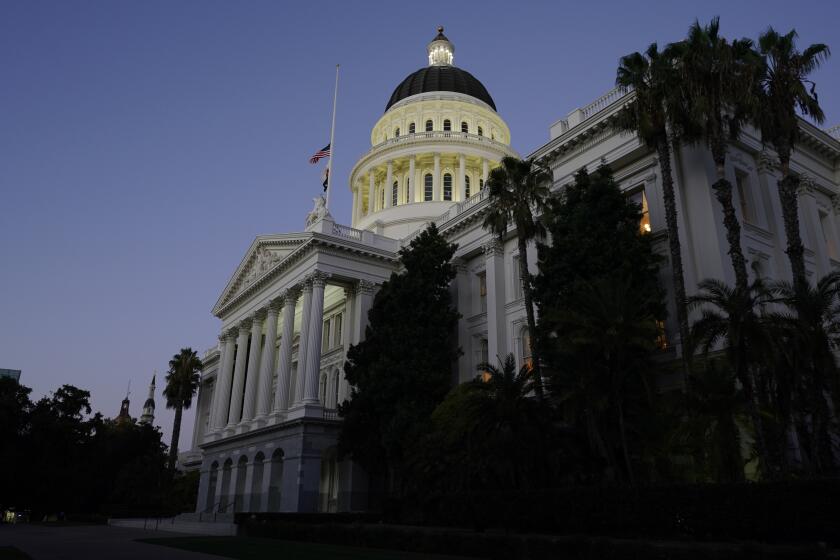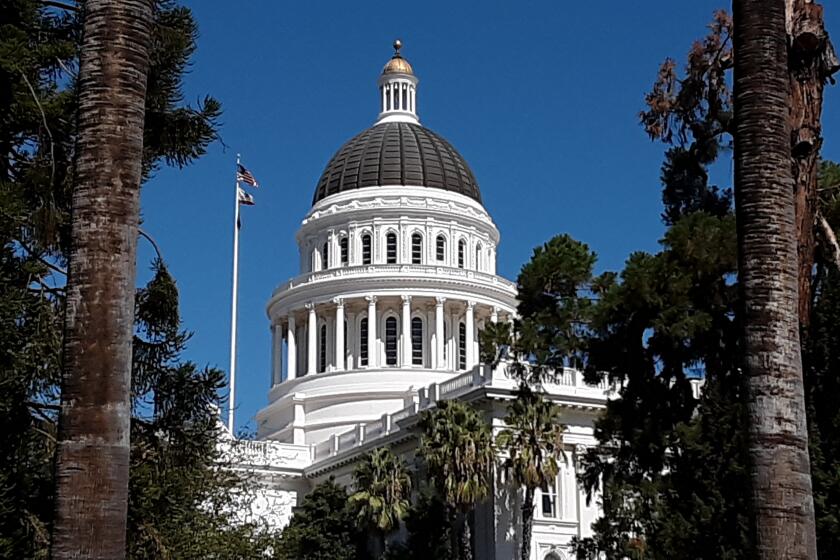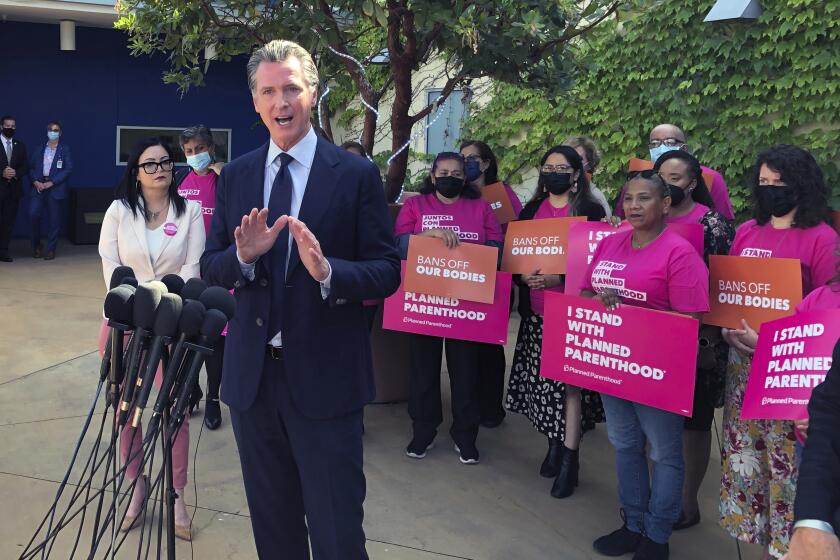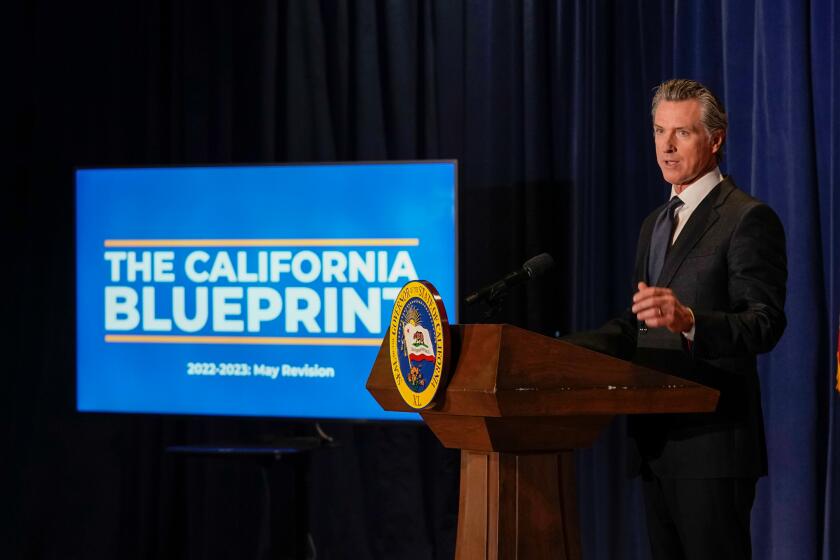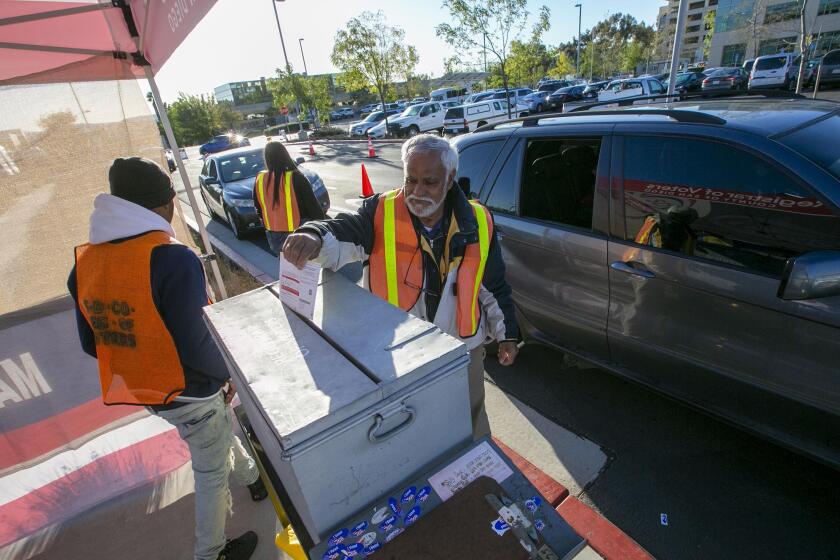
John Myers
Follow Us
John Myers led the Los Angeles Times’ coverage of state government as Sacramento bureau chief from 2015 to June 2022. He also wrote a weekly newsletter on California politics and provided regular news analysis. Prior to joining The Times, he spent more than two decades in radio and television news, much of that as an award-winning reporter covering Sacramento. He has served as the moderator of gubernatorial debates and has spent much of his career exploring ways to expand statehouse coverage through online blogs and a California politics podcast. A resident of the capital city, he holds degrees from Duke University and UC Berkeley.
Latest From This Author
In John Myers’ last newsletter, he shares a few observations about California’s government, both those who are elected to lead it and the role of citizens in making it all work.
Some of the most alluring promises made 10 years ago — that pragmatic candidates would prevail over partisans, for example — have failed to materialize.
Only two California primaries in the last four decades have seen voter turnout above the 50% mark.
Even a last-minute surge of interest might not keep California’s June 7 statewide primary from landing near the historical low point of voter turnout.
More than 2,000 proposed laws have been introduced by legislators this year, as well as a few dozen ceremonial resolutions and a few constitutional amendments.
Several years of California tax surpluses can obscure some of the larger, perhaps more important long-term trends in how taxpayer dollars are spent.
The governor’s proposal spans both long-term investments and immediate cash rebates, largely made possible by a towering $97.5-billion tax surplus through next summer.
The plan would devote billions to an inflation relief package, drought and wildfire conditions, healthcare plan subsidies and higher school funding.
Led by a quartet of measures to expand taxes and raise taxes, California voters will probably be inundated this fall with TV ads, online videos and a mountain of political mailers.
El salario mínimo del estado para las grandes empresas es actualmente de 15 dólares la hora, y las empresas que tienen menos de 26 trabajadores pagan 14 dólares la hora.
